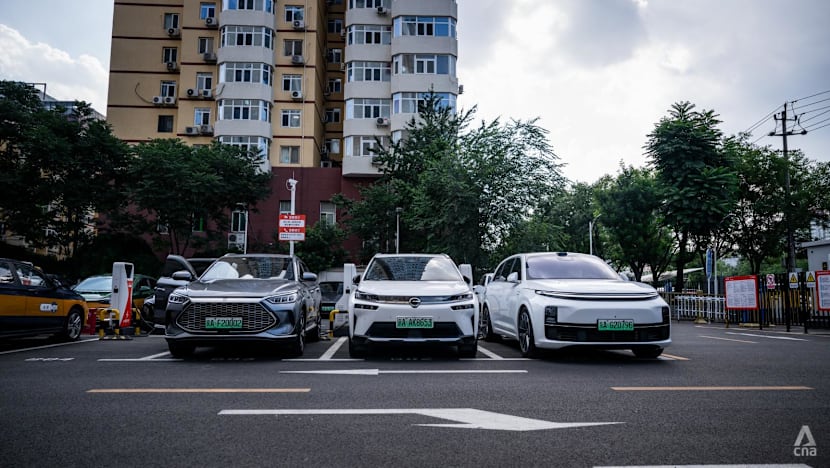Commentary: How China made cities less noisy
Electric vehicles, noise-reducing surfaces and no-honking zones are dampening the din of Beijing, says Eleanor Olcott for Financial Times.

BEIJING: A few months after moving to Beijing, I realised something unexpected – I was sleeping better than I had in years. This was a surprising revelation in what can politely be termed a “challenging” urban environment.
In the various cities I have lived in, I have grown accustomed to my slumber being pierced by the early morning rumbling of a petrol or diesel vehicle. In London, my cobbled street was haunted by the growl and beeping of rubbish trucks reversing into the lane. In Taipei, rusty repair vans would rattle down the alleys, blaring adverts for menial household tasks. In Hong Kong, trucks dumped deliveries of dried fish at a nearby market.
Beijing was different. It wasn’t just my high-rise apartment in a residential neighbourhood. The overall noise from streets across the capital and in many other Chinese cities I visit seems to be growing dramatically quieter since my first visit as an adult in 2016.
THE RISE OF ELECTRIC VEHICLES
The biggest change in the intervening decade is the rise of electric vehicles – the quiet cousin of internal combustion engines. EVs produce lower levels of noise when driving at the low traffic speeds dictated by cities. The noise advantage disappears as they speed up, since the sound of the tyre starts to drown out the engine above 50km per hour.
Research suggests EV drivers also tend to accelerate and brake more smoothly, a difference psychologists attribute to the calmer atmosphere of a quieter cabin.
That prompted a thought: Could China, home to the highest number of EVs in the world, be offering a glimpse of a future where noise pollution is finally being addressed? And if so, could this newfound peace bring real gains: higher productivity and improved health that result from a better night’s sleep?
China’s environment ministry produces an annual report on noise pollution that provides some answers. The latest edition, published earlier this month, shows a steady improvement.
In 2024, the daily compliance rate for all noise pollution, which includes noise from residential areas, industry and transportation links, was 95.8 per cent during the day and 88.2 per cent at night. For noise pollution specifically on roads, the compliance rate has increased from 92.6 per cent in 2016 to 99.4 per cent during the day, and from 50.5 per cent to 76.3 per cent at night.
While EVs are not the sole reason, it seems unlikely that this is a coincidence. Among major cities, Shenzhen and Shanghai record the highest compliance rates and boast the highest levels of EV penetration.
MORE THAN CARS
Still, this is not just a story about cars. The rise in compliance began before the EV boom started in 2020. Another reason is simply that the deafening roar of construction has subsided. The once-frenzied pace of Chinese urban development slowed sharply and, in many places, ground to a halt after the property crisis of 2021.
In the past, visitors would marvel at how skylines changed with every trip. Today, it is remarkable how little cities like Beijing and Shanghai are changing.
Meanwhile, city planners have been quietly working to dampen the din. Last year, China laid 32 million sq m of noise-reducing road surfaces and installed 833,000m of sound barriers. Local governments have rolled out no-honking zones, barred heavy-duty trucks from city centres and set up noise-monitoring devices in parks that alert officials to overly rowdy activity.
As city traffic grows quieter, another irritant has become harder to ignore: other people. China recorded close to six million noise complaints last year, with 71 per cent linked to “social activities” – shouting, music and noisy neighbours.
But even here, officials are taking action. Noisy bars and clubs have been closed down or relocated. Jiangxi government last year launched what they pithily described as a “Joint Law Enforcement Campaign to Control Noise Pollution from KTV Venues”, fining venues if their patrons’ wailing could be heard from the streets.
After years of being woken up by noisy drivers, I have developed a world-class collection of earplugs, optimised for maximum noise cancellation. I still use them on my travels. But when I’m at home, they stay in the drawer.















